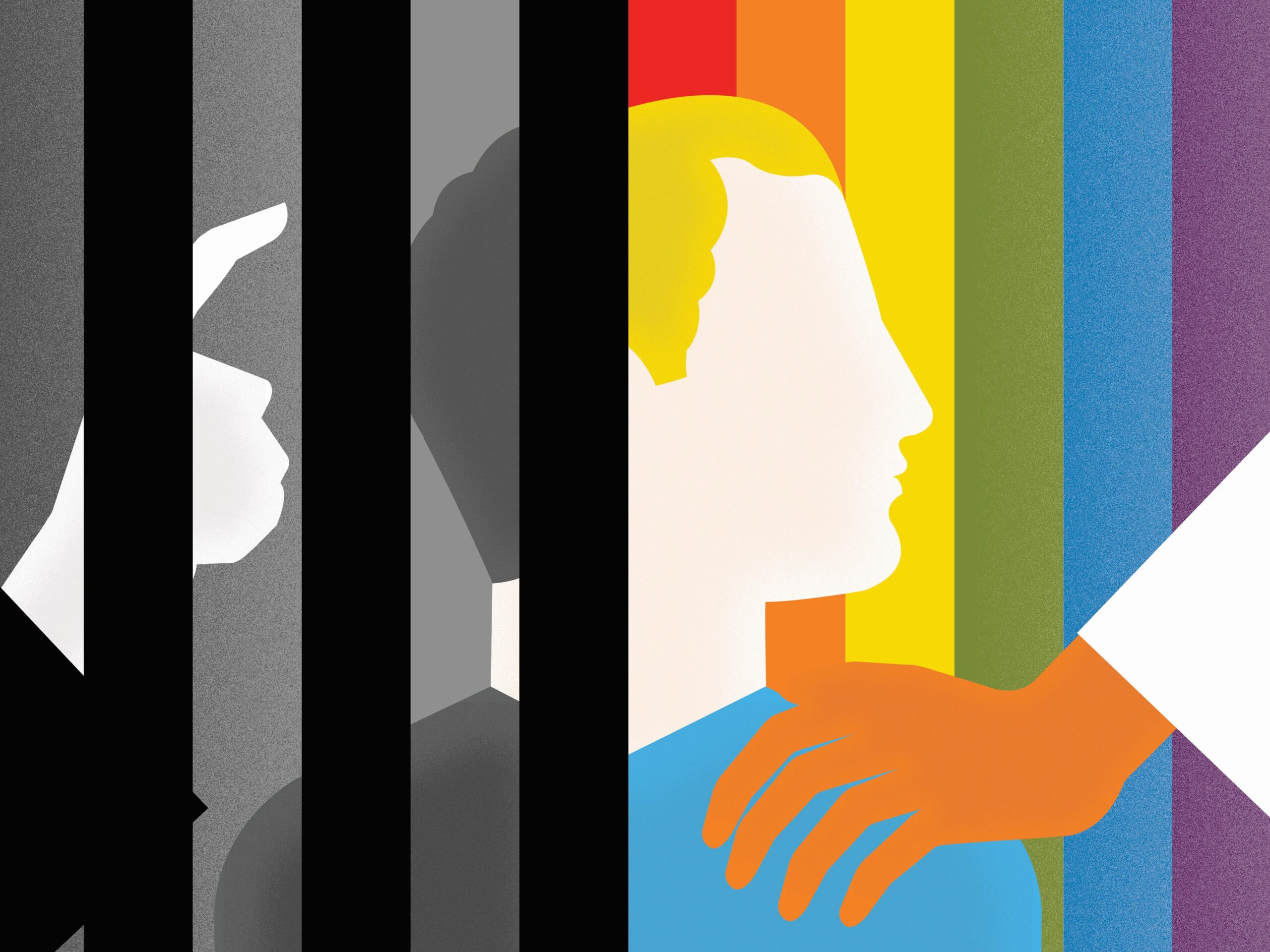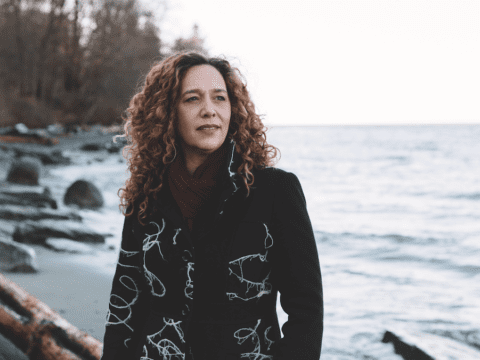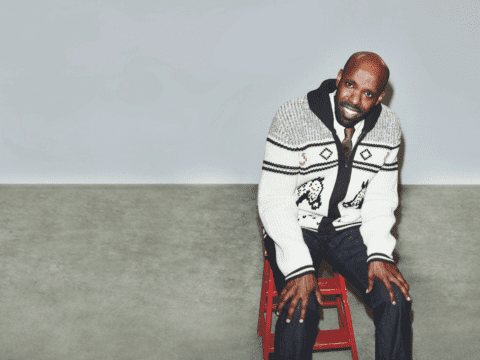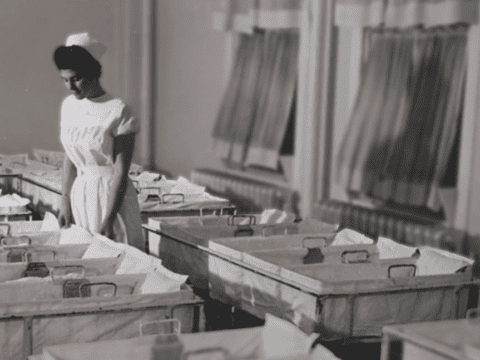When Rev. Curt Allison was in his late 20s, he joined an “ex-gay” ministry in Oklahoma City. He’d been hiding his attraction to men for over a decade, and he hoped the ministry could help him deal with his feelings. It was associated with Exodus International, a large organization promoting conversion therapy, which tries to change someone’s sexual orientation or gender identity through counselling, behaviour modification, medication or prayer. But after 15 months of sharing, talking and praying, Allison realized his sexuality is a part of who he is, and always would be. He left the ministry.
“That was probably the darkest day of my life,” Allison says. “I thought that by leaving Exodus, I was leaving God.” Over time, he learned to see things differently. He joined an affirming United Methodist church that helped him reconnect with his faith. “They basically loved me back to wholeness,” he says, “until I made peace with spirituality and sexuality with no contradiction.”
You may unsubscribe from any of our newsletters at any time.
Now in his 50s, he’s the minister of outreach at St. Andrew’s-Wesley United in Vancouver, where he aims to bring that kind of healing to other survivors of conversion therapy. He leads the Word is Out!, an LGBTQ2 outreach group for those who have been alienated from the church, have gone through a time of discomfort with their sexuality or who miss the spirituality that they used to have. Based in the historic light-filled church in the city’s West End, the group meets for Sunday lunches,
annual retreats, bowling, and potluck dinners with discussions on spirituality and LGBTQ2 life.
More on Broadview: I once led a conversion therapy organization
These days, the conversion therapy movement is crumbling. In 2009, it was disavowed by the American Psychological Association, which argued it doesn’t work. Among other harms, it increases the risk of depression and suicide, broken or lost faith, and homelessness for young people after parents reject them. Exodus International disbanded in 2013 with an apology for the hurt it had caused. Vancouver became the first Canadian city to ban the practice in 2018, and it’s banned or limited in Ontario, Manitoba, Prince Edward Island and Nova Scotia. Nationally, the federal government introduced Bill C-8 in March, which would make conversion therapy for minors a crime.
But while municipalities can ban conversion therapy as a business, and provinces can delist it from medical plans, off-book Christian counselling still happens. “The majority of the time, people in the United Church have no idea what modern conversion therapy looks like. It’s easier to hide. It can just look like you’re in a prayer group, or you’re seeing a counsellor or your pastor really cares about you,” says Pam Rocker, director of Affirming Connections in Calgary (she also chairs the Broadview board).
Members of the United Church are finding ways to stand up to conversion therapy across the country, and they say more work needs to be done until the practice disappears entirely. Given the United Church’s history of leadership on human rights and social justice issues, advocates say the church should oppose conversion therapy at levels from the national to the local — and that its voice is particularly needed because the therapy is promoted by people of faith with a different viewpoint.
“We might be Affirming people, but we’re not naive to the fact that people use Christ and the Bible to justify discrimination and even say that God compels them to do it,” says Rocker. “We have the opportunity to truly bring ‘good news,’ and realistically, our work is as much about harm reduction and saving lives as it is about reclaiming faith as an aspect of a loving and liberating life.”
For her, that work involves media interviews, social media, writing articles against conversion therapy and preaching about the practice. In February, she helped to organize a rally with Hillhurst United, where faith community members draped in rainbow scarves went to Calgary city council as it voted to draft a ban. A bylaw prohibiting the practice was approved in May.
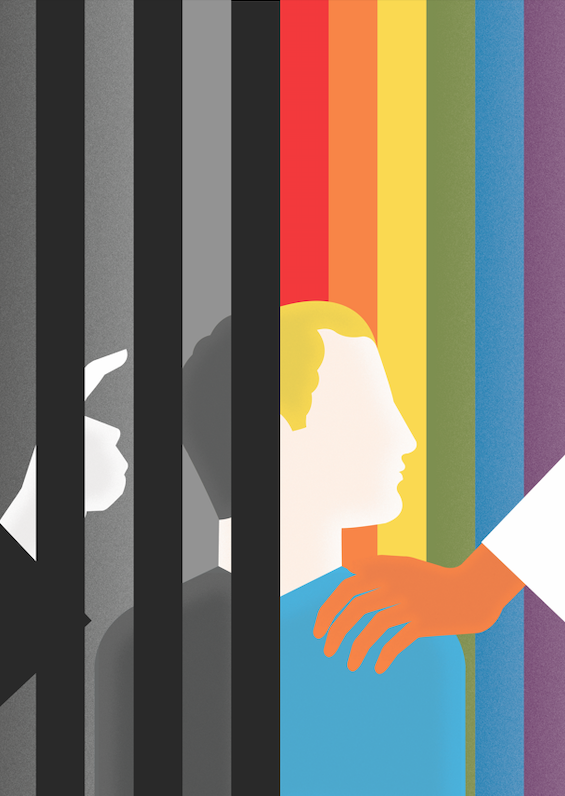
While The United Church of Canada does not have an official policy specifically on conversion therapy, “we have affirmed that human sexual orientations and gender identities are gifts from God, part of the marvellous diversity of Creation,” says Jordan Sullivan, ministry partnership animator in the General Council Office. “We affirm the value and dignity of all people. Therefore, we reject any therapy or practice that labels LGBTQIA+ and two-spirit people as abnormal, broken or otherwise not whole individuals.”
Sullivan has seen the impact of conversion therapy on both himself and others. “I was raised a conservative Seventh-day Adventist and identify as a trans man. I’ve been through the trauma of conversion therapy,” he says. “There is pushback from conservative religious voices about how bans on conversion therapy impinge on religious freedom. Christian voices need to speak up in support of the [conversion therapy] bill and debunk the notion that perpetrating harm is consistent with religion or religious liberty.”
The national church first took formal action against conversion therapy in 2019, sending a letter to the federal government asking for its definition of the practice to be broadened to include people of all ages, not just minors. Sullivan says the church is working on education, awareness and advocacy resources so congregations and individuals can speak up when the House of Commons considers Bill C-8.
“The majority of the time, people in the United Church have no idea what modern conversion therapy looks like. It’s easier to hide.”
Pam Rocker, director of Affirming Connections
More support for the federal bill will come from Rev. Cheri DiNovo, who led the legal opposition to conversion therapy in Ontario. In 2015, DiNovo, who had stepped down from ministry to serve as a member of provincial parliament, was part of a travelling committee set up to explore gay-straight alliances. Members of the public repeatedly told her about their experiences with conversion therapy. “I was shocked,” she says. “I had no idea this was still going on.” She brought forward a private member’s bill, and Ontario banned conversion therapy for minors later that year.
DiNovo, who is now back in the pulpit at Trinity-St. Paul’s United in Toronto, has been advising federal politicians of Ontario’s experiences. “When the bill goes to committee, I intend to testify on [Ontario’s] five years living with a ban, and its effects and history.”
Resistance to conversion therapy also happens on a local level. In June 2018, two “ex-gay” speakers were scheduled to attend Camp Pugwash, a Seventh-day Adventist camp in Nova Scotia. Mat Whynott, chair of the outdoor recreational ministries committee for what was then Maritime Conference, decided to write a letter of support to local LGBTQ2 groups. He stated that people of all sexual orientations are welcome at the five United Church camps in the Maritimes. “I felt that as an Affirming Conference, we should take initiative to be an ally,” he says, to tell the LGBTQ2 community that “there is a church that supports them.”
Gary Simpson is another United Church member who is a vocal activist on the subject. In 2019, he served on an Alberta government committee to hear viewpoints on banning conversion therapy in the province. (The committee was disbanded after Jason Kenney’s Conservatives came to power.) He now leads a group called Affirm! McDougall at Edmonton’s McDougall United for conversation, informal support and non-confrontational activism, and has lobbied against conversion therapy to Canadian mental health associations. At human rights protests, he pays attention when other protesters show up with visible signs of their faith, like a church banner or clerical collar, and he believes United Church members should likewise be visible.
“I think we’re making a good start,” he says about the national church’s work on conversion therapy, adding, “I don’t think we’re going as far as we need to go.” He would like to see the United Church publicize its stance to counteract potential opposition to Bill C-8 from conservative religious groups. “The last thing we want is for MPs and cabinet ministers to feel like every person of faith is against them. We should stand with a high profile with other faith groups opposed to conversion therapy.”
That’s the example set by St. Albert (Alta.) United. On July 8, 2019, Rev. Mervin Gallant stood in front of St. Albert city council as a dozen of his congregants wearing Affirm United T-shirts looked on, hoping their city would become the second in Canada to ban conversion therapy. “Often the voice of the Christian church has been portrayed as speaking in one voice in opposition to LGBTQ2S+ persons and in support of such atrocious practices as conversion therapy,” Gallant told the councillors. “That portrayal is far from true.”
When it was time to vote, the motion passed — unanimously. Three councillors who had been planning to vote against it thanked Gallant for his words. He had changed their minds.
***
Susan Peters is a writer in Winnipeg.
___________________________________________________________________________
I hope you found this article from Broadview engaging. The magazine and its forerunners have been publishing continuously since 1829. We face a crisis today like no other in our 191-year history and we need your help. Would you consider a one-time gift to see us through this emergency?
We’re working hard to keep producing the print and digital versions of Broadview. We’ve adjusted our editorial plans to focus on coverage of the social, ethical and spiritual elements of the pandemic. But we can only deliver Broadview’s award-winning journalism if we can pay our bills. A single tax-receiptable gift right now is literally a lifeline.
Things will get better — we’ve overcome adversity before. But until then, we really need your help. No matter how large or small, I’m extremely grateful for your support.
Jocelyn Bell
Editor/Publisher

